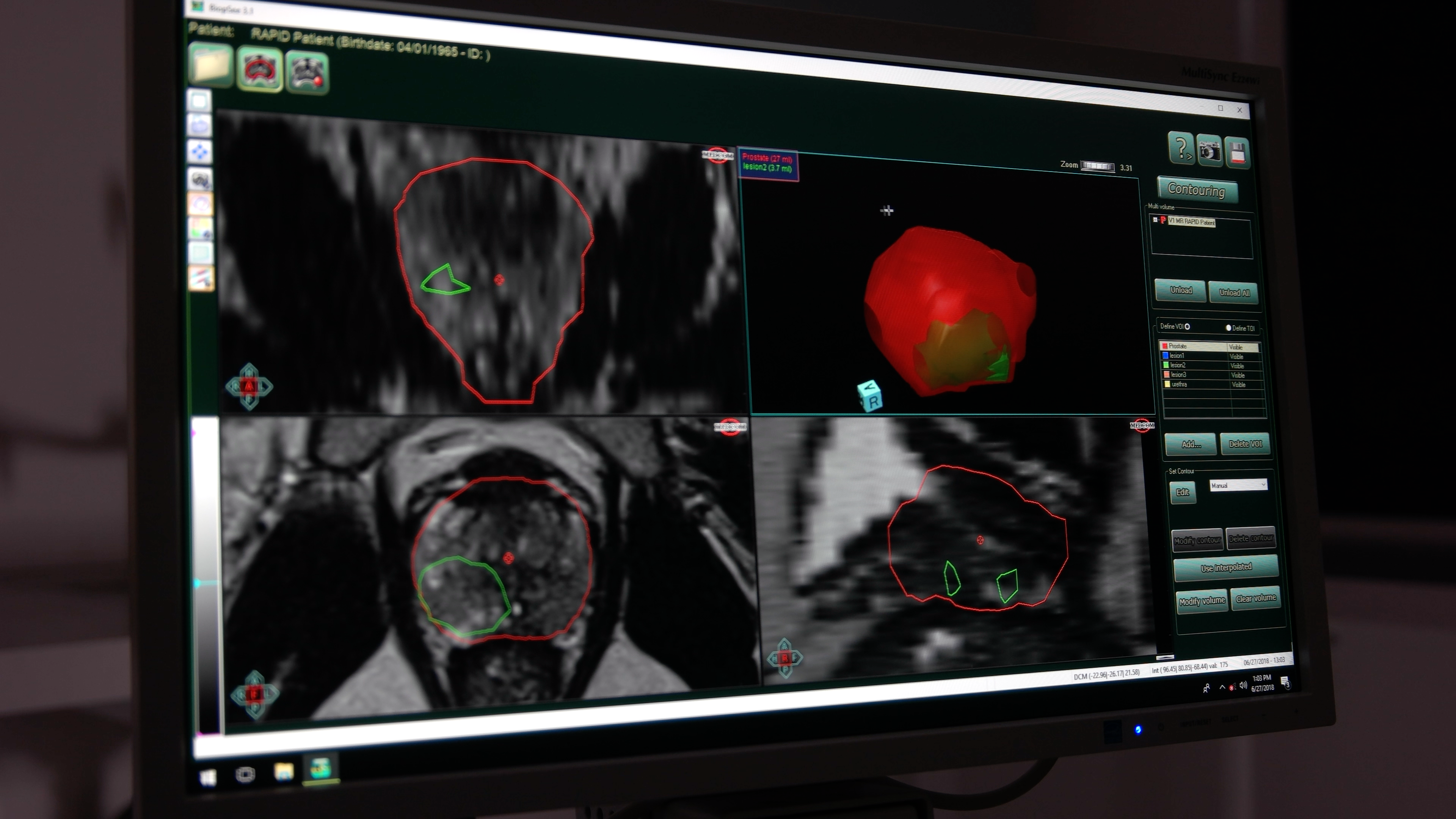RAPID diagnostic prostate cancer pathway

Fusion biopsy images showing prostate lesions
RM Partners is piloting the RAPID (Rapid Access to Prostate Imaging and Diagnosis) prostate pathway that utilises ‘first in the world’ technology which fuses live ultrasound and MR images for a revolutionary biopsy procedure. Up to 30% of men are discharged back to their GP on the day, knowing that they are at low risk of prostate cancer and were able to avoid an unnecessary invasive biopsy.
The project is being piloted at three west London Trusts: Epsom and St Helier University Hospitals NHS Trust in partnership with The Royal Marsden NHS Foundation Trust, Imperial College Healthcare Trust, and St George’s University Hospitals NHS Foundation Trust.
What is RAPID?
The RAPID pathway is using the findings from cutting edge research (the PROMIS trial) to identify those men who are most at risk of having prostate cancer and who require a further investigative biopsy.
The new pathway comprises a one-stop model where men have a multi-parametric MRI, assessment with a specialist clinician and, if necessary, a specialist biopsy utilising the latest technology – all on the same day. This means that those who have no or low grade prostate cancer, can be safely discharged without further investigation, back to the care of their GP, compared to a waiting time of several weeks.
Those men who require further investigation are offered a transperineal FUSION biopsy, one that takes tissue samples through the perineum rather than through the rectum. A FUSION biopsy uses precision equipment to allow consultants to take samples from the exact locations of lesions seen on the MRI scan. This reduces the number of samples necessary to make a diagnosis and significantly reduces the risk of life-threatening sepsis and other complications, such as incontinence and erectile dysfunction. These men receive a diagnosis within approximately 8-10 days after biopsy.
Other benefits of RAPID include:
- Men have all their diagnostic investigations within 10-14 days from GP referral
- Men usually only need one visit (reduced from the usual four) to obtain a diagnosis)
- Men with a low or no cancer risk are informed of this on the day
- Men with unimportant disease are discharged back to primary care with support and guidance for the GP in managing the man in the community
- Fewer samples taken at each biopsy
- Men with important cancers are identified and moved rapidly to treatment
Patient experience
As part of the project men have been invited to take part in patient experience questionnaires and interviews so that we can understand the impact of the service on the men and their families.
The feedback has been overwhelming positive so far, with 95% men stating that they really appreciated the speed at which they were seen and were able to be given either the all clear or a diagnosis of cancer and that this greatly reduced their worry time.
They are also pleased with the support of pathway navigators, who contact each of the men directly immediately after they are referred in by the GP to explain the appointments to them and what to expect. On the day, the pathway navigators show the men where to go for each of their appointments and are a point of contact for them during their investigations.
The future for RAPID
Over the period of the two year pilot at least 5,000 men will be investigated. The results will be evaluated to identify the potential for rolling out this model across England. We are already working closely with NHS England and other Cancer Alliances across England to share the learning and experience of setting up these services.
RAPID in the news

